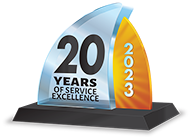Becoming a DOT-Qualified Substance Abuse Professional (SAP): A Step-by-Step Guide for Providers
Substance Abuse Professionals (SAPs) are vital in maintaining safety within industries regulated by the U.S. Department of Transportation (DOT). SAPs play a critical role in evaluating employees who violate DOT drug and alcohol testing regulations and guiding them through the return-to-duty (RTD) process. For behavioral health and substance abuse professionals interested in becoming DOT-qualified, this guide provides a clear, step-by-step overview of the requirements and process.
Substance Abuse Professionals: Understanding Their Role
A SAP evaluates employees who fail a DOT-mandated drug or alcohol test and recommends education, treatment, and follow-up testing plans. The SAP ensures that employees are safe to return to safety-sensitive duties while maintaining strict adherence to DOT regulations. Familiarity with DOT rules and industry-specific safety considerations is crucial.
Meet the Eligibility Requirements
To qualify as Substance Abuse Professionals, you must hold one of the following professional licenses or certifications:
- Licensed or certified social worker
- Licensed or certified psychologist
- Licensed or certified employee assistance professional
- Certified alcohol and drug abuse counselor
- Licensed physician (Doctor of Medicine or Osteopathy)
Ensure your certification or licensure is current and in good standing.
DOT SAP Training, Examination, & Maintaining Ongoing Education
Prospective SAPs must complete training specific to DOT regulations (49 CFR Part 40). The training should cover:
- DOT drug and alcohol testing rules and procedures
- SAP functions and responsibilities
- The evaluation and referral process for employees
- Return-to-duty and follow-up testing requirements
Training providers must be qualified and reputable, offering programs that satisfy the DOT’s requirements.
After completing the training, you must pass a qualification exam demonstrating your understanding of DOT rules and the SAP role. This ensures you are equipped to handle evaluations and compliance requirements effectively.
Maintain Ongoing Education
To remain DOT-qualified, SAPs must complete continuing education every three years. This training ensures SAPs stay updated on changes to DOT regulations and best practices in substance abuse evaluation and treatment.
Become a SAP and Join SAP Referral Services’s Network of Qualified Substance Abuse Professionals
Becoming a SAP allows you to make a meaningful impact on workplace safety and individual lives. By guiding employees through a structured process to regain compliance, you contribute to safer operations across industries like transportation, aviation, and trucking.
Once qualified, you can expand your reach by joining a referral network like SAP Referral Services. These networks connect DOT-regulated employers and employees with qualified SAPs in their area making it easier for providers to build their practice and help employees comply with federal requirements.
For more information about becoming a SAP or joining SAP Referral Services’s network, contact us today.


